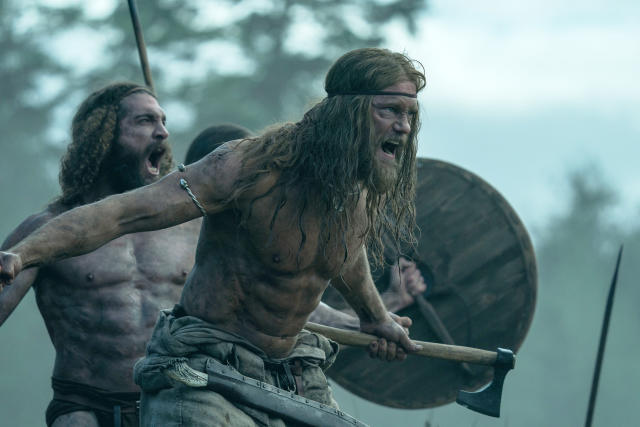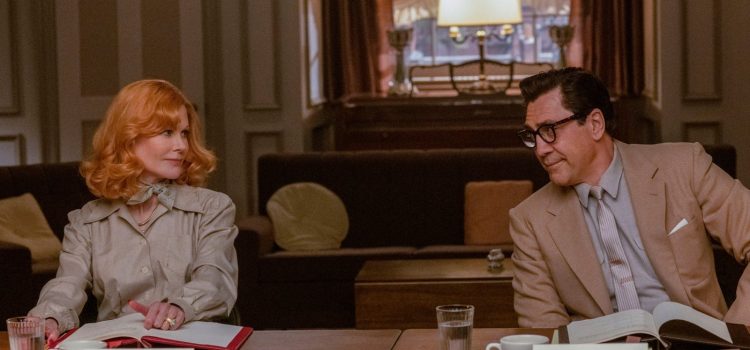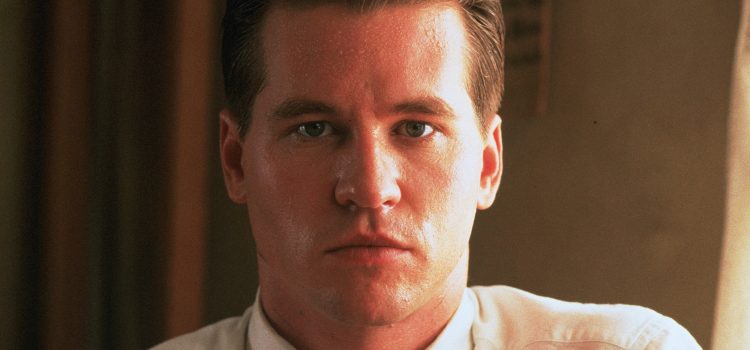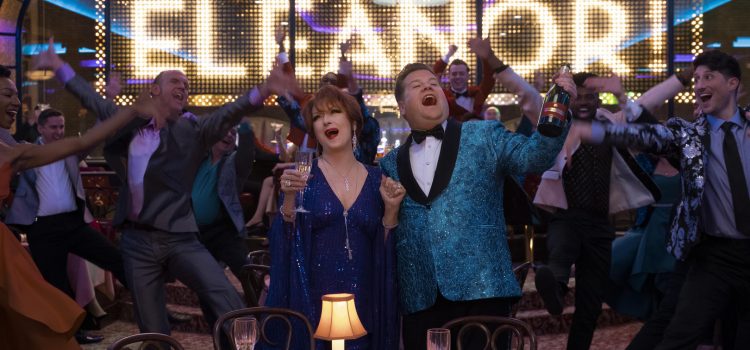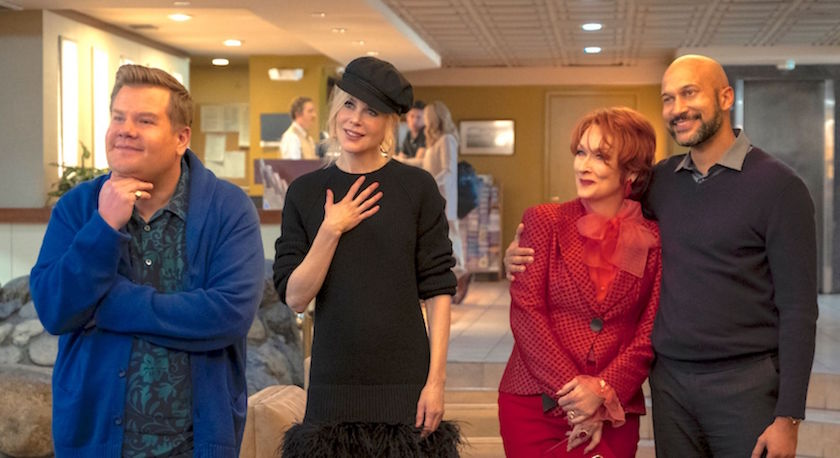By Lynn Venhaus
For all its relentless fury and fire, “The Northman” has a remote iciness that hampers emotional investment in the Shakespearean heroes and villains.
That said, its vast medieval-era storytelling is stunning in its vivid and realistic presentation and sets in motion a bloody, savage revenge tale.
A terrified boy sees his father slaughtered, his mother kidnapped, and his tribe decimated. To escape from death, he runs for his life, and his future path is set by trauma – horrible violence and emotional pain.
The young prince repeats this phrase over and over, first as he escapes: “I will avenge you, Father! I will save you, Mother! I will kill you, Fjölnir!”
It’s a simple plot, really, but like his other two immersive historical films “The Witch” (2016) and “The Lighthouse” (2019), director Robert Eggers takes a long time getting to where he wants to go.
The ambitious and singular Eggers, known for his visionary aesthetic and meticulous historical details, has wrapped this gruesome adventure with dark Norse mythology and mystical elements.
Set in the 10th century Iron Age in Scandinavia, this brutal testosterone-fueled exercise honors Nordic rituals and customs in a painstaking, sometimes surreal, way. Don’t expect inaccurate horned helmets or any out-of-sync aspect.
The Icelandic and Northern Ireland landscapes are a portrait of an emerging agrarian civilization whose marauding barbarians have their own laws and behaviors. Those seafaring Vikings were in their land-taking phase then.
Those familiar with Vikings’ television programs, and such grand-scale movies as “Gladiator,” “Braveheart” and even “Conan the Barbarian,” will understand the power struggles and the tribal need to conquer.
The Nordic characters are faithfully portrayed in the blood-and-guts action, with intense swordplay and more than a few beheadings. With such characters as Finnr the Nose-Stub and Hersveinn the Battle-Hard, you can imagine the chest-thumping and loud growls.
Women, naturally, are marginal characters, but in Eggers’ screenplay, co-written by Scandinavian author Sjon, Queen Gudrun (Nicole Kidman) is given a hefty character arc. Unfortunately, ethereal Anna Taylor-Joy as slave Olga of the Birch Forest needed more to do – but does display a fierceness.
Singer-actress Bjork shows up in one scene as a seeress, who reminds Amleth of his destiny.
Similarities to “Hamlet” are obvious. After all, he was the Prince of Denmark — whose father was killed by his uncle who married his mother. But was Shakespeare inspired by Amleth’s odyssey, not vice versa? Hmmm.
The strange, trippy quality is enhanced through Jarin Blaschke’s atmospheric cinematography, Craig Lathrop’s impeccable production design and a propulsive musical score from Robin Carolan and Sebastian Gainsborough. Those drumbeats are ominous.
Blaschke, who has worked on all Eggers’ films and was Oscar-nominated for “The Lighthouse,” frames the starkness brilliantly, often working with candles and fire. So has Lathrop, whose primitive design was influenced by historical consultants, including archeologists and literary scholars.
The plot doesn’t offer much complexity, and although there is an interesting twist revealed about two-thirds of the way, most of the characters don’t have enough passion to engage. They can be admired for their mental and physical toughness but keep us at a distance.
The once lively little boy (well-played by an all-in Oscar Novak) has turned into a sour, dour and buff he-man who is so singularly focused he can’t fully enjoy the love of a good woman.
The likable Alexander Skarsgard is physically fit for the role, with his lanky physique, and has taken on blockbuster roles in “Kong vs. Godzilla” and “The Legend of Tarzan” before without making a mark. This fearless beast starts at 11 and has nowhere to go in ferocity.
However, Skarsgard has previously demonstrated he is best-suited for dramatic turns in independent films and prestige television – the suave guy with some simmering issues (Racist husband in “Passing,” jilted groom in “Melancholia”). He first gained notice as the Viking vampire Eric Northman on HBO’s “True Blood” (2008) and later won an Emmy as the menacing, abusive husband of Nicole Kidman in “Big Little Lies” (2017).
Interesting that he and Kidman team up again, only she plays his damsel-in-distress mother here. Kidman gives the film’s best performance.
In typical wacky Willem Dafoe fashion, “The Lighthouse” star is Heimr the Fool. Ethan Hawke is impactful in his brief role as King Aurvandil War-Raven.
Things tend to get weird if Eggers is in charge, and he likes to explore evil forces’ effect on ordinary lives, how it messes with fate. With a bigger budget and broader in scope, “The Northman” delivers as a spectacle but falls a little short of its lofty goals.
The gripping action scenes of the first chapter give way to repetitive combat in the final ones, and even though the big showdown is one primal scream, by then the narrative has lost steam.
“The Northman” is not for the faint of heart. It’s a difficult challenge to meld artistic vision with blunt-force action, and the rage is never harnessed. For all the modern talk about toxic masculinity, this is an early example, and therefore, hard to watch in 21st century times.
But as a period piece, its sheer weight is enormous, and deserves to be explored.
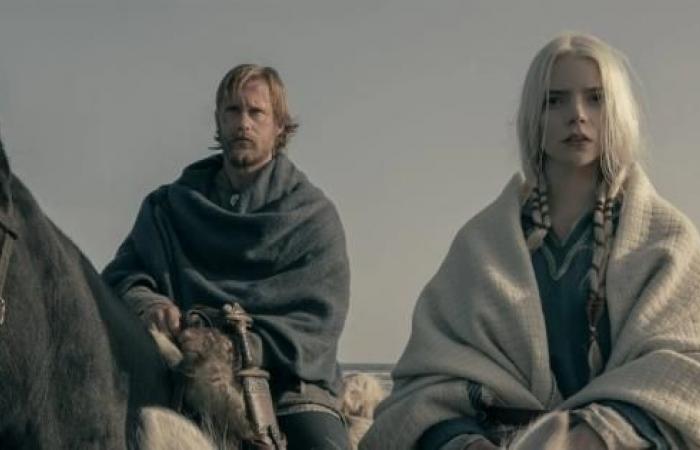
“The Northman” is a 2022 action, adventure, drama directed by Robert Eggers and stars Alexander Sarsgaard, Nicole Kidman, Claes Bang, Anya Taylor-Joy, Willem Dafoe, Ethan Hawke, Bjork and Oscar Novak. It is rated R for strong bloody violence, some sexual content and nudity and runs 2 hours, 20 minutes. It opens in theaters April 22. Lynn’s Grade: B.

Lynn (Zipfel) Venhaus has had a continuous byline in St. Louis metro region publications since 1978. She writes features and news for Belleville News-Democrat and contributes to St. Louis magazine and other publications.
She is a Rotten Tomatoes-approved film critic, currently reviews films for Webster-Kirkwood Times and KTRS Radio, covers entertainment for PopLifeSTL.com and co-hosts podcast PopLifeSTL.com…Presents.
She is a member of Critics Choice Association, where she serves on the women’s and marketing committees; Alliance of Women Film Journalists; and on the board of the St. Louis Film Critics Association. She is a founding and board member of the St. Louis Theater Circle.
She is retired from teaching journalism/media as an adjunct college instructor.



